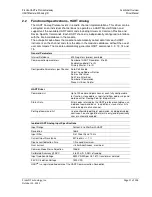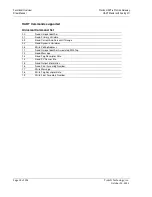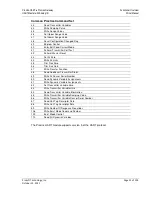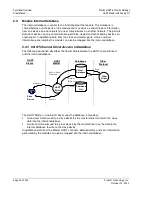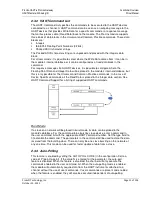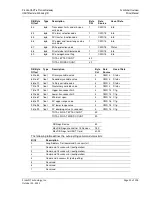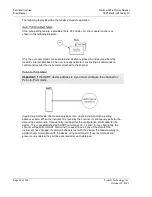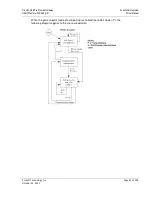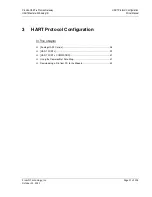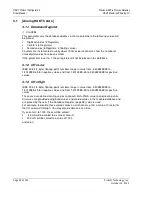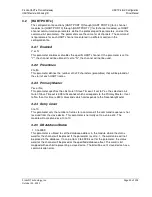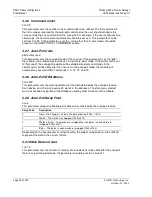
Functional Overview
ProLinx-HART ♦ ProLinx Gateway
Driver Manual
HART Master with Analog I/O
Page 16 of 104
ProSoft Technology, Inc.
October 13, 2011
2.1
HART Channels
The ProLinx module supports the HART protocol as a Master on up to 4 channels per
interface card, with one or two cards per gateway. Each channel is individually
configurable.
The relationship between the port labeling on the front of the ProLinx module and the
application is as follows:
Port Label
Function
Debug
Debug/configuration
Port 0
Communications Port 0
Channel 1
Hart Port 0
Channel 2
Hart Port 1
Channel 3
Hart Port 2
Channel 4
Hart Port 3
Channel 5
Hart Port 4
Channel 6
Hart Port 5
Channel 7
Hart Port 6
Channel 8
HART Port 7
The HART protocol uses the Bell 202 standard frequency shift keying (FSK) signal to
communicate at 1200 baud, superimposed at a low level on the 4 to 20 mA analog
measurement signal. Having an average value of zero, an FSK signal causes no
interference with the analog value. The HART devices are powered from this 4 to 20 mA
analog loop.
User configured commands determine the HART commands to be issued on each
channel to the HART devices. Up to 100 commands can be defined for each port. Data
read from the devices are placed in the virtual database. Any write requests or device
specific command for the HART slave devices are sourced with data from the virtual
database or from a configured constant data block. In the commands it can be specified
whether to use the HART device’s short or long address. If the long address is selected,
the device is polled first with short address to ask for the long one. Then the device is
polled with the long address. The module does all this processing of the address
automatically.
The module can be configured to place slave devices that are not responding to
commands from the master ports at a lower priority. If the module recognizes that a slave
device has failed to respond to a message after the user defined retry count, it will mark
the slave as "in communication failure" and set the error delay time to the specified value.
Each time that the error delay time expires, the slave will be polled and if the answer is
successful, the slave is placed again in an active status. This facility can improve
communication throughput on the HART network.
In a HART network, it is possible to have two masters. The ProLinx module fully supports
the existence of a second master, but it can reduce the throughput on the HART network.
This facility is enabled or disabled in the module’s configuration. If the ability to have a
second master on the network is disabled, then maximum throughput is achieved.
















